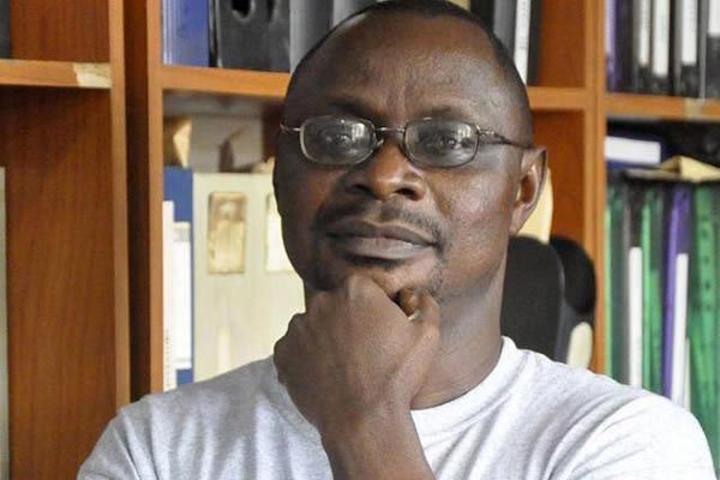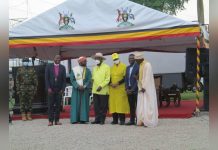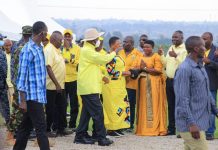Africa-Press – Uganda. The Rev Can Amos Kasibante is a man of the cloth. But any interaction with his writings reveals a man of books. Indeed he teaches at a university in London.
I take pride in my association with the Rev. Can. Kasibante’s scholarly publications on social media. His posts on Christian scholarship are very nourishing. In one of such scholarly writings, he helped me understand the deification of Jesus Christ by the Christians (and the projection of Jesus Christ as a historical figure).
The resurrection is the basis of Christianity. Yet there is no resurrection without death. Most religions treat death as a transition from the here-now to the here-after. Even in the non-coded African Traditional Religions, life and death are treated as two sides of the same coin. And it is not uncommon that the dead may interfere (via intervention and or intercession) in the affairs of the living.
In Islam, we pray and seek God’s indulgence to treat the dead with kind hands and forgive them their transgressions. There too is Swadak t’ul Jaria (a charitable act done by the living whose thwawab (blessings) are credited to the dead). Islam, which holds a stronger disposition to the concept of pre-destination, treats death (and life) as a preserve of the almighty God.
Whether someone was killed by bullets, poisoned or other…, we say: it is God who gives and it is God who takes away. Praise be to God. Why then is there this suspicion about deaths and their causes? Would it make any difference, in the sight of God, if one were killed by a bullet or by witchcraft?
Why are some people suspicious that Dr Cyprian Kizito Lwanga, the Ssabasumba (Archbishop) of Kampala Archdiocese may have died of un-natural causes?
What is natural (and what is not) in the path leading death? The fragility of our bodies renders us vulnerable to the biological weakness that leads us to death (any time).
The Catholic Church hierarchy in Uganda has stated the probable causes of death of the late Archbishop; and his personal doctor, no less a person who heads the Catholic Church’s top medical facility in the country, has confirmed the probable cause of the death. Why then the suspicion?
Yet the suspicions (and purveying the rumours) about the cause of the archbishop’s death is a material reality. But as Ugandans always ask; how did we reach here? How did we reach this situation where deaths of prominent social and cultural personalities are almost squarely blamed on the State? Where is the Almighty God in all this? Whereas it is every citizen’s civic duty to hold the government under scrutiny, the association of deaths with State is dangerous.
Why are our people connecting the death of Dr Anas Kalisa and that of Sheikh Muzata to that of Archbishop Lwanga?
What level of negativity are we (as a country) supposed to exhibit as a measure of expressing our (political) disapproval of the people running the affairs of the State? *************** We come to condole with the family of the late archbishop, clergy of the Catholic Church and the people of Uganda. And we seek God’s indulgence to shine the everlasting light on Ssabasumba Kizito Lwanga.
Ugandans need to accept death as an integral part of life. The control and management of life and death are a preserve of the all powerful God who superintends over the heavens and Mother Earth.
We recognise ourselves as earthlings and only humble ourselves to pray for Archbishop Lwanga. Rest in Peace Ssabasumba; in death lies eternity and a new life.
Mr Bisiika is the executive editor of the East African Flagpost. [email protected]






